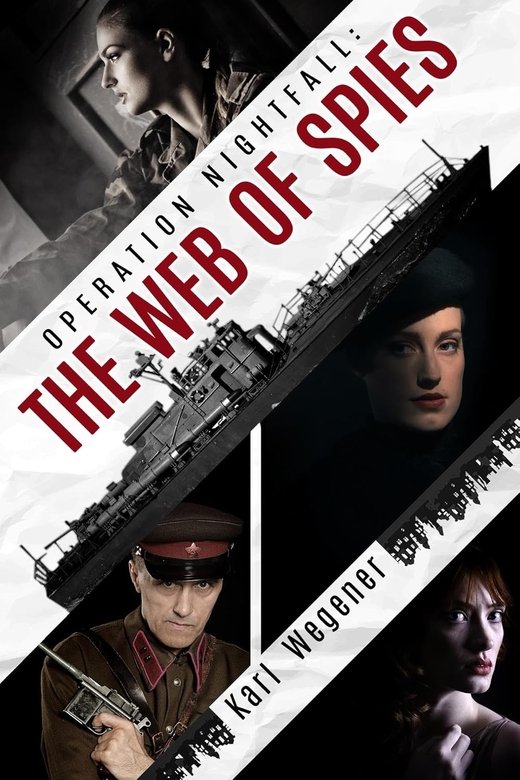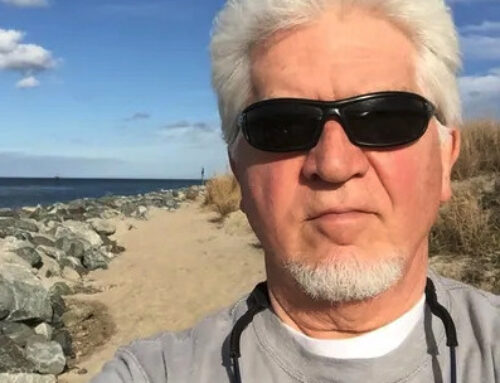 Karl Wegener is a former Russian linguist, intelligence analyst, and interrogator who served in the U.S. Army, the U.S. Air Force Reserve, and within the Intelligence Community during the Cold War. He currently lives in Delaware with his wife and two dogs.
Karl Wegener is a former Russian linguist, intelligence analyst, and interrogator who served in the U.S. Army, the U.S. Air Force Reserve, and within the Intelligence Community during the Cold War. He currently lives in Delaware with his wife and two dogs.
Tell us about your book.
My latest novel, Operation Nightfall: The Web of Spies is set in Poland in 1948. It is inspired by the true events of Poland’s anti-communist insurgency, the Cambridge Five Spy Scandal, and a covert MI6 operation which attempted to roll back communism to the borders of the USSR.
Former SOE operative Luba Haas and Mi6 agent Natalie Jenkins secretly enter Poland to meet with a sleeper agent and with anti-communist insurgents not realizing their mission has been compromised by a mole deep inside British intelligence. They are hunted by Soviet and Polish intelligence services and attempt a harrowing escape, not know whom they can trust as they try to outrun their captors.
Why did you want to write a book?
After I left the Intelligence Community at the end of the Cold War, I began a long career in marketing and advertising. For the fifteen years prior to my retirement in 2021, I worked as a copywriter and ghostwriter for advertising and public relations agencies. I wrote many words for other people, but when I came home at night, I never found words for myself. I decided to become a novelist because it is something I have wanted to do all my life.
 Why did you choose to self-publish?
Why did you choose to self-publish?
I’m in my early seventies now and have Stage IV cancer. I’ve been battling the disease for two years. I decided to self-publish because I don’t have the time left to go through the extensive process of querying, finding an agent, shopping the book to publishers, and going through the lengthy process of seeing the book published. I feel fortunate because I believe we are living in a “golden age” of self-publishing. It’s akin to the development of the printing press. It has never been easier for writers to publish through outlets such as IngramSpark, Amazon, etc.
Even though I self-publish, I take my work very seriously. I’ve made investments to hire designers, developmental, line and copy editors, and proofreaders. I’ve made investments in online advertising and public relations to help get the word out about my work.
What tools or companies did you use, and what experience did you have?
I’ve used IngramSpark to publish and Ingram Content to distribute my books. I had no prior experience with them, but upon investigation and after due diligence, I learned they publish high-quality books. Their distribution is unmatched. Every independent bookstore in the world buys through Ingram and I want to be able to sell my books, not only through online retailers, but through independent bookstores.
Would you self-publish again?
Yes. Without question, self-publishing is my plan. Now, if the right agent walked through my door or called me, I’d be open for discussion. But I don’t see that happening.
What do you think are the main pitfalls for indie writers?
It’s so daunting because you have to not only write, you have to become a publisher, a marketer, a public relations expert. The good news is there are many people out there who can help and every day, more and more tools become available for writers to get their work out into the world.
As a writer, what is your schedule? How do you get the job done?
It’s been more difficult for me to establish a schedule since my illness. I have to balance medical appointments, chemotherapy infusions, and all that. I actually had to stop writing last year in the middle of writing Operation Nightfall because of chemotherapy and a difficult surgery. But, I was able to return to writing to complete the book.
I’m very disciplined. I only write 4-5 hours a day. I begin in the late morning, usually around 10:30 a.m. I always begin by revising my work from the day before. That allows me to get back into the writing, the characters, and the scenes I am writing. I break for lunch for about an hour, and then hit it again for about two hours in the afternoon. It’s a “wash, rinse, repeat” kind of process. I try to write between 750-1500 words a day. At that pace, I can have an 80K-90K manuscript completed in about 4-5 months.
How do your friends and family get involved with your writing? What do they think of your book?
My wife is my muse. And because she has a strong background in IT and computers, she’s become my book formatter. She does all of the digital typesetting and formatting. I don’t know what I would do without her. My neighbors have also been early readers of my books. I suppose you could call them alpha readers. They have helped me validate the storyline of my books and their input has been invaluable.
What are your plans now your book is published?
I’m actively working on marketing the book. I have a number of book signings and speaking events planned over the course of the next year to promote the book and the story behind it. And of course, I’m working on my next book, which will be a sequel to Operation Nightfall, but set in Germany about ten years later.
Why did you write about this particular subject?
In Operation Nightfall: The Web of Spies readers will learn about a forgotten event of the Cold War period – the Polish anti-communist insurrection. Most people think WW 2 ended in 1945, but the war didn’t end in Poland. Poles were fighting against a new occupier, the Soviet Union. All of my books highlight some forgotten aspect of the Cold War. Although I am not a historian, I’m attempting to interest people in the history of the time through storytelling.
Author Links
Get an Editorial Review | Get Amazon Sales & Reviews | Get Edited | Get Beta Readers | Enter the SPR Book Awards | Other Marketing Services























Wonderful interview, Karl, and wishing you success with your writing and battling your illness. Denise